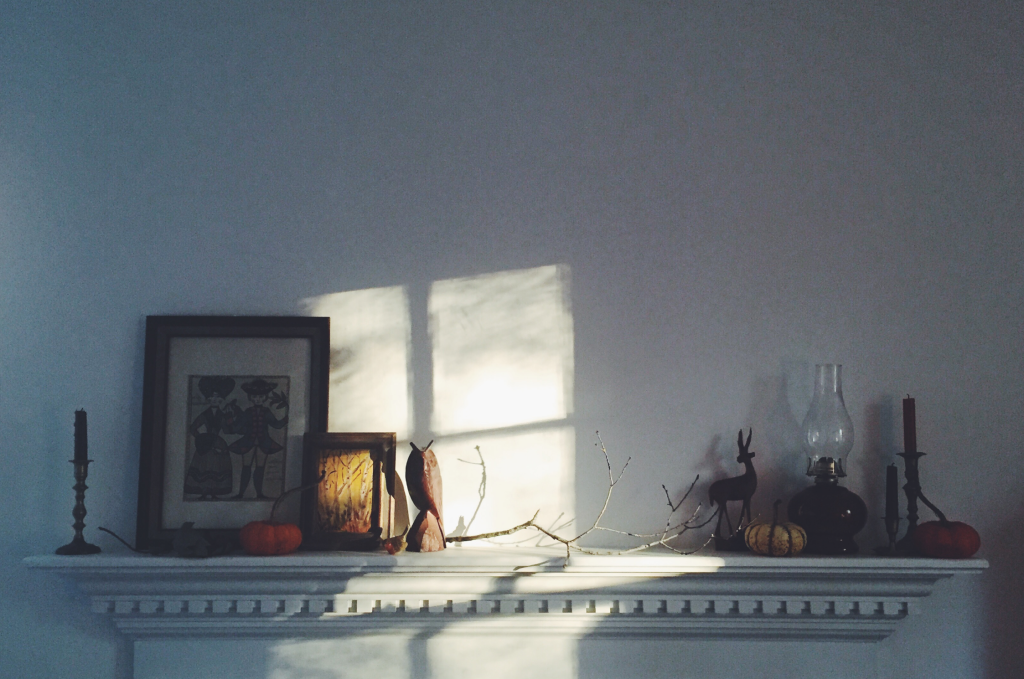Putting Ourselves in the Way of God
I sobbed the night Rich Mullins died. I wasn't a fanatic fan, I was just a 16 year old girl who'd been jostled from a stupor by his lyrics. I still wouldn't awaken fully for another 14 years, but the jostling was powerful still.
Rich was the first Christian I knew about whose faith—and the wrestle for it—seemed real and not built of principles and precepts and rules and boundaries and all the suffocating things I thought Christianity was. I dreamed about his kind of Christianity for a lot of years, knowing it must be possible to be as jacked up as he was and still as loved as he seemed to think he was. It would be another decade and a half before I'd begin to really understand the way to know the "reckless raging fury that they call the love of God," and that the way to believing we really are that loved is to first admit we really are that jacked up—and to never separate those two confessions from one another ever.
I sat at a table with a friend last night and we talked, as we have always talked, for as long as I've known her (a few years after the night I cried wet tears with my best friend while we leaned against my bed and listened to the news of Rich Mullins' death on the radio), about the gospel. She has always been a teacher of sorts to me, the one who used the words gospel and grace and predestined and the cross in a way that drew me instead of confused me. She was canning beets and I was drinking water and it has always been that way for her and for me. She, faithful with the work of her hands in a small sustainable farm in upstate New York, parenting her kids, being a wife, listening and sharing sermons, and every day reminding herself and others that the gospel that saved her is the gospel that sustains her and she needs it, oh how she needs it. She's in her 50s and canning beets and telling me again she can't coast by on anything but the kindness of God who draws her to repentance. I want to be like her.
The thing I love about Rich Mullins, and the thing you do too if you've given any of his lyrics a good hard listen, is that he never let anyone believe he was too big for his britches, too big for a walloping from God, or too important for anyone. I think that's the reason he was barefoot so often, as if to say it's all holy ground, "every common bush afire with God," and yet we're not yet, not yet afire with God. Not all the way through. He wore the garments of sinner and saint well and I want to be like that too.
I've grown weary of the goodness again, the pretty perfect people. I've grown weary of hearing myself talk or talking at all. The harder I work to be sanctified, the more I despise the person I become, straight-jacketed, self-important, principled, careful, wise, stupid, or naive. I hear more Pharisee in me than Jesus in me. Not because I'm a hypocrite or a white-washed tomb, but because I forget the gospel that saves is the gospel that sustains.
I read this from Andrew Peterson this morning, the intro to the concert I was a little bit heartbroken to miss. I'm reminded we're all just folks wanting to put ourselves in the way of God, desperate for the kind of affection and attention we think will fix or save or help or reward us. But the thing I think Rich Mullins knew, and my friend who was canning beets knows, and the thing I want to know more than anything is God has put himself in my way.
As a Father he picked up his robes and ran toward our filthy sin-stained rags and our filthy righteous robes. As the Son he became sin. As the Spirit he comes and fills and overflows and empowers us to live today and the next day and the next day and the next, one step in front of another, ragamuffins, but faithful ragamuffins as best as we can understand it.
There's a wideness in God's mercy
I cannot find in my own
And He keeps His fire burning
To melt this heart of stone
Keeps me aching with a yearning
Keeps me glad to have been caught
In the reckless raging fury
That they call the love of God





